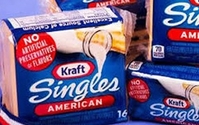food
Kraft In Push To Simpler, 'Real' Ingredients
- by Karlene Lukovitz @KLmarketdaily, February 20, 2014

Consumer attitudes about food and buying habits have shifted radically, and food and beverage companies have to adapt or face irrelevance, declared Kraft Foods Group CEO Tony Vernon, speaking at this week's Consumer Analyst Group of New York conference in Boca Raton, Fla.
Vernon described an “unprecedented confluence of factors that has the potential to change the way we operate for perhaps decades to come” -- one of which is that growing numbers of consumers want fresh, "real" foods, reported FoodBusinessNews.
This isn't just a "premium" trend; rather, it's a cultural shift: "For more and more people, the foods they eat and how they are made is a reflection of their values," he said. "Freshly made and simple ingredients are becoming primary purchase drivers and we must incorporate this into our new product development and brand renovation plans.”
advertisement
advertisement
Kraft isn't about to abandon the brands and processed foods still loved by consumers, like Kraft Macaroni & Cheese. But "renovating" its huge brands (10 of which each generate $500 million or more in annual revenues) by reducing calories, sugar, sodium and fats or adding beneficial ingredients is "a big opportunity," he said.
Kraft already grabbed attention early this month when it announced that it had removed the artificial preservative sorbic acid from its two largest-selling varieties -- its full-fat American and White American varieties -- and replaced it with natamycin, a natural mold inhibitor.
One in-the-works move to improve the "nutrition profile" of existing brand lines is launching a version of Philadelphia Cream Cheese with added protein.
Vernon said Kraft will also be pushing to develop new products with simpler ingredients and no artificial colors, flavors and preservatives.
He also addressed the in-progress revolution in communicating with consumers on a one-on-one basis, being enabled by digital and social media and shopper marketing/databases.
Kraft's digital marketing group generated about $80 million in savings last year by achieving desired reach more efficiently, he reported.
Other major trends driving change at food and beverage companies stressed by Vernon include the massive and still-growing buying power and influence of Hispanics and Millennials, and the bifurcation of consumer wealth that is causing middle- and lower-income households to significantly reduce impulse grocery shopping and stick to planned trips and shopping lists.


